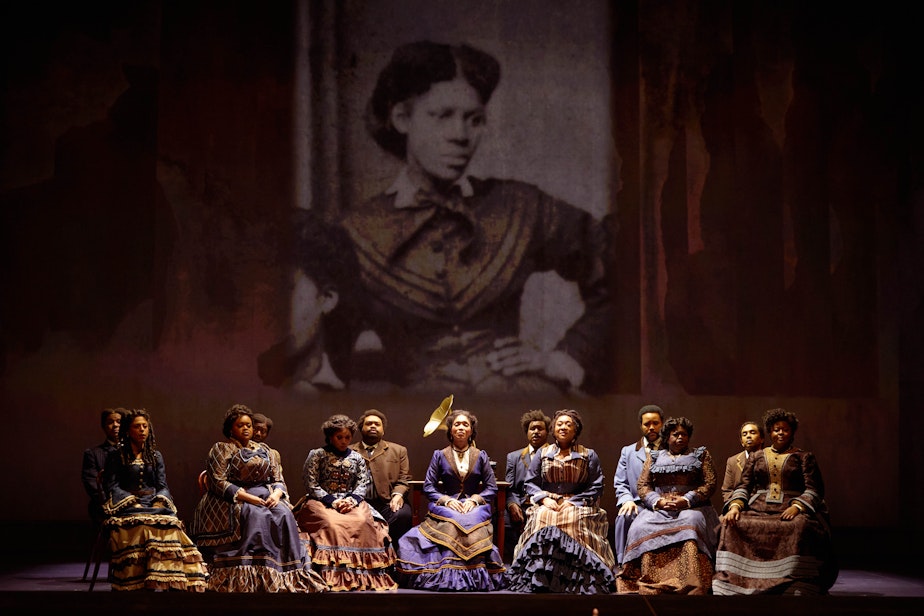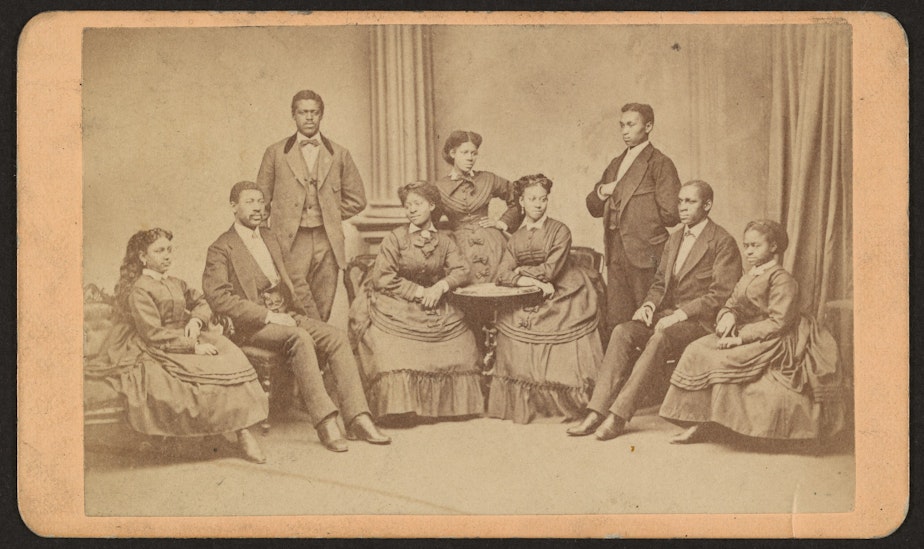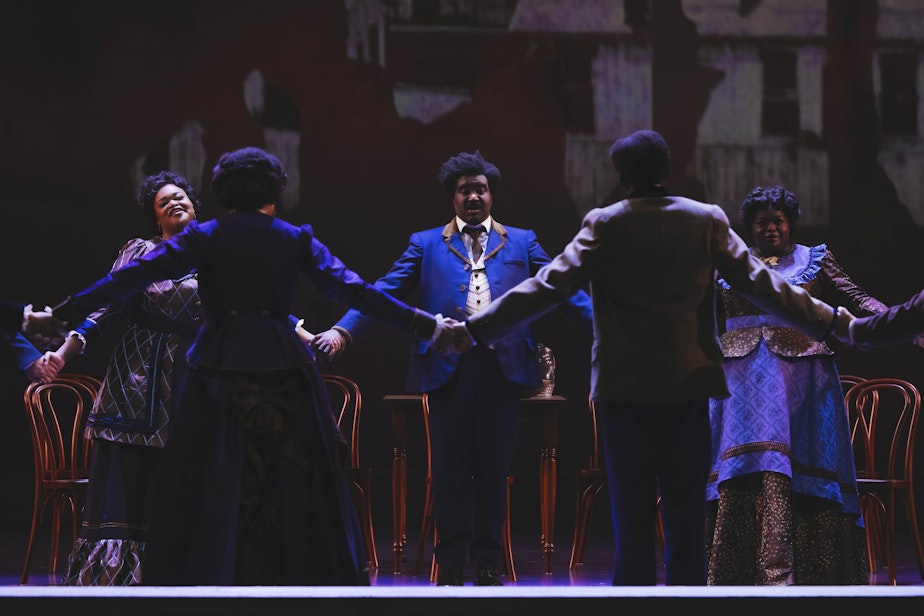Seattle Opera brings the spiritual to the stage in 'Jubilee'

Seattle Opera brings the spiritual to the stage in "Jubilee"
Tazewell Thompson remembers the first time he heard a spiritual.
Before becoming a recognized writer and operatic director, Thompson grew up in a convent in New York after being separated from his parents by the state, who deemed them “unsuitable and unfit to raise children.”
It was at this convent that he developed a love for music, singing as a soprano in the choir. When he was 8 or 9 years old, a nun named Sister Benvenuta pulled him aside to listen to some records.
“She said to me at the end of class, ‘Mr. Thompson, I'd like you to come to my office, because I want you to hear something that concerns you – and your culture,’” Thompson recalled. “I was the lone black boy in this class. And so I came to her office after school, and she played for me a selection of records.”
Sponsored
On those records were a series of African-American spirituals made famous by young, recently-enslaved singers freed after the Civil War.
“The group is called the Fisk Jubilee Singers,” he remembered. “I was… entirely captivated.”
Thompson said that moment with Sister Benvenuta fostered his sense of reverence for classical spirituals, and that interest stayed with him even after he grew up and left the convent, collecting vinyl cassettes and sheet music for these spirituals throughout his life.
It was after watching a documentary on the Fisk University Jubilee Singers – 25 years after he first heard one of their recordings at the convent – that he began working the Fisk Singers’ story into an opera titled "Jubilee," which recently made its world debut with the Seattle Opera.

The Jubilee Singers
The opera follows a group of young students and singers, many of whom were recently freed slaves in the aftermath of the Civil War, and their pursuit to raise funds for the Free Colored School in Nashville, Tennessee.
The school at the time was made up of dilapidated army barracks, and students struggled to purchase food and books.
“They knew that when they were slaves, the very idea of holding a book – much less trying to read a book, possessing a book at all – could mean your hands could be cut off, your eyes gouged out, you could be whipped or lynched. So they knew that what was between the covers of these books must hold power,” Thompson said.
The school eventually changed its name to Fisk University (as it remains today). It was the school’s chorus director, George White, who came up with the idea to raise funds through choir performances. After struggling to gain an audience with contemporary songs, White wanted to pivot to a selection of African-American spirituals.
Sponsored
The students, however, were hesitant.
“They did not want to sing these spirituals because they represented anguish, and pain, heartache and heartbreak,” Thompson said. “But they gave it a chance.”

As audiences filled in for the new repertoire, a hat was passed to drum up donations. It proved to be a winning combination.
The Fisk Jubilee Singers began touring the north and the south of the United States, eventually receiving an invitation to sing for Queen Victoria overseas. The Queen of England even commissioned a monumental painting of the singers, which now resides at Fisk.
Sponsored
By the end of their tour, the group had garnered $150,000 for the school – the equivalent of $4.5 million today. It didn’t come without a cost, however, as the singers faced hostility and racism throughout their travels. It was their courage and determination – coupled with the power behind the spirituals they sang – that inspired Thompson to detail this rich history in the opera.
“The spirituals really represent the blueprint, the scaffold, the chart, the spine, the heart and soul of what we know today as gospel and blues and jazz,” he said. “There's a yearning, a particular centralness that these songs dig deep into their psyche, into their hearts.”

The Seattle Stage
Thompson originally wrote the opera as an a capella musical, and it was initially brought to a Washington, D.C. stage in 2019.
Sponsored
When he reached out to companies for a potential run of the program elsewhere, he got an immediate response from Christina Scheppelmann, the outgoing general and artistic director at Seattle Opera, who encouraged him to develop the story into an opera. She offered a 48-instrument pit orchestra, and Thompson said he was "over the moon" at the opportunity.
As part of the show's debut, Seattle Opera hosted figures from Fisk University’s past, present, and future.
“Fisk Jubilee Singers, to me, stand for and present, in current day time, an era long gone,” said Dr. Agenia Clark, the current president of Fisk University. “But it is a constant reminder of the importance of those experiences and how their voices truly do transcend time.”
“I hope audiences will walk away from 'Jubilee' with a greater understanding of the resilience and cultural significance of the Jubilee Singers, and a greater understanding and appreciation for the spiritual in and of itself, regardless of who's singing,” said Marlette Buchanan, a Seattle-based vocalist and former Jubilee Singer.
Tazewell Thompson was especially excited for a final showing of the opera exclusively reserved for students, and he hopes the production might inspire a reverence for history and the stage through the audience’s own “Sister Benvenuta moment.”
Sponsored
“You may not remember the entire experience, but something like 'Swing Low, Sweet Chariot,' or 'Deep River,' or 'Go Down Moses,' or 'Sometimes I Feel like a Motherless Child' – a certain spiritual or a certain experience will have a deep impact on you and and the way you think about that song and where you first heard it,” he said.
"Jubilee" runs from Oct. 12 through Oct. 26 at Seattle’s McCaw Hall.





